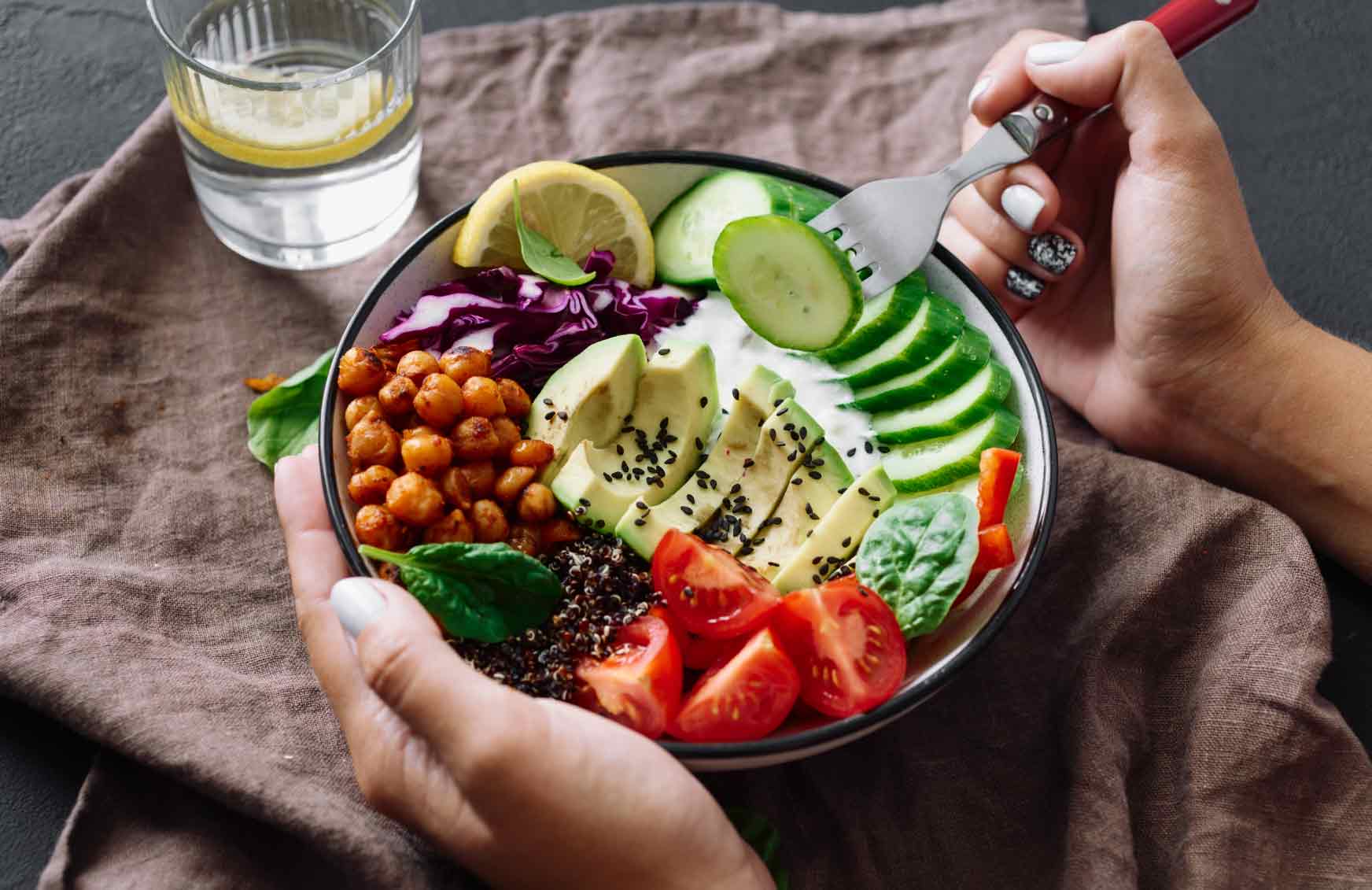How To Stop Sugar Cravings Instantly: 10 Proven Strategies For Sweet Tooth Relief

Sugar cravings can strike at any time, often leading to unhealthy eating habits and unwanted weight gain. While it's natural to have a sweet tooth, giving in to these cravings too often can have negative effects on your health. Fortunately, there are effective strategies to curb those sugar urges. In this comprehensive guide, we'll explore 10 proven strategies to help you stop sugar cravings instantly, enabling you to take control of your diet and overall health.
Understanding Sugar Cravings
Before diving into the strategies, it's important to understand why sugar cravings happen. Sugar cravings are driven by a combination of physiological, psychological, and environmental factors. Here are some common reasons why you might experience them:
- Blood Sugar Imbalances: When your blood sugar levels drop, your body craves sugar as a quick source of energy.
- Habitual Consumption: Regular consumption of sugary foods can create a habit, making your body crave sugar even when it doesn’t need it.
- Emotional Triggers: Stress, boredom, or emotional distress can trigger sugar cravings as a way to seek comfort.
- Nutritional Deficiencies: A lack of certain nutrients, like magnesium or chromium, can lead to cravings for sweet foods.
Understanding the root cause of your cravings is the first step in managing them effectively.

1. Eat Protein-Rich Meals
One of the most effective ways to curb sugar cravings is to ensure that your meals are rich in protein. Protein helps stabilize blood sugar levels and keeps you feeling full for longer periods, reducing the likelihood of reaching for sugary snacks.
- Include Protein in Every Meal: Aim to include a source of protein, such as eggs, chicken, tofu, or legumes, in every meal.
- Healthy Snacks: Keep protein-rich snacks like nuts, yogurt, or hummus handy to stave off cravings between meals.
Why It Works
Protein takes longer to digest than carbohydrates, which means it provides a steady source of energy. By keeping your blood sugar levels stable, you’re less likely to experience the highs and lows that lead to sugar cravings.
2. Stay Hydrated
Dehydration can sometimes be mistaken for hunger or sugar cravings. Drinking water can help you feel full and reduce the intensity of cravings.
- Drink Water Regularly: Aim to drink at least 8 glasses of water a day. If you feel a craving coming on, drink a glass of water first and wait 10 minutes to see if the craving subsides.
- Add Flavor: If plain water isn’t appealing, add a slice of lemon, cucumber, or a few berries for a hint of flavor without added sugar.
Why It Works
Staying hydrated helps maintain your body’s balance, preventing false hunger signals that can lead to unnecessary sugar consumption.

3. Get Enough Sleep
Lack of sleep can increase your cravings for sugary foods. When you’re sleep-deprived, your body produces more ghrelin, the hormone that stimulates appetite, and less leptin, the hormone that signals fullness.
- Prioritize Sleep: Aim for 7-9 hours of quality sleep each night.
- Create a Sleep Routine: Establish a calming bedtime routine to improve your sleep quality, such as avoiding screens before bed, reading a book, or practicing relaxation techniques.
Why It Works
Adequate sleep helps regulate your hunger hormones, reducing the likelihood of sugar cravings during the day.
4. Practice Mindful Eating
Mindful eating involves paying attention to what you eat and how you feel while eating. By practicing mindfulness, you can better recognize true hunger and fullness cues, helping you avoid unnecessary sugar consumption.
- Slow Down: Take your time when eating, savoring each bite. This allows your body to register fullness before you overeat.
- Be Present: Avoid distractions like TV or smartphones while eating, so you can fully focus on your meal.
Why It Works
Mindful eating helps you become more in tune with your body’s needs, reducing the chances of giving in to cravings out of habit or emotional distress.
5. Incorporate Healthy Fats
Healthy fats, like those found in avocados, nuts, and olive oil, can help curb sugar cravings by providing long-lasting energy and keeping you satisfied.
- Add Healthy Fats to Your Diet: Include sources of healthy fats in your meals, such as adding avocado to your salad or snacking on a handful of almonds.
- Choose Omega-3s: Omega-3 fatty acids, found in fish like salmon and flaxseeds, are particularly beneficial for brain health and can help reduce sugar cravings.
Why It Works
Fats slow down the absorption of sugar into your bloodstream, preventing the rapid spikes and crashes that lead to cravings.
6. Chew Sugar-Free Gum
Chewing gum can be a simple yet effective way to distract yourself from sugar cravings. The act of chewing keeps your mouth busy and can reduce the urge to reach for something sweet.
- Choose Sugar-Free Options: Opt for sugar-free gum to satisfy your need for sweetness without adding extra calories or sugar to your diet.
- Keep Gum Handy: Carry sugar-free gum with you so you can reach for it whenever a craving strikes.
Why It Works
Chewing gum can help reduce hunger and cravings by providing a low-calorie alternative to snacking.
7. Avoid Artificial Sweeteners
While it might seem logical to replace sugar with artificial sweeteners, these can actually make sugar cravings worse. Artificial sweeteners are much sweeter than sugar, and regular consumption can increase your desire for sweet flavors.
- Choose Natural Sweeteners: If you need to sweeten your food or drinks, opt for natural sweeteners like stevia, which doesn’t have the same effect on your cravings.
- Limit Sweeteners: Gradually reduce your use of all sweeteners, including natural ones, to retrain your taste buds to enjoy less sweetness.
Why It Works
Reducing your intake of overly sweet foods helps decrease your tolerance for sweetness, making it easier to resist sugar cravings over time.
8. Get Moving
Physical activity can help reduce sugar cravings by boosting your mood and energy levels. Exercise also helps regulate blood sugar levels, which can prevent the dips that lead to cravings.
- Incorporate Regular Exercise: Aim for at least 30 minutes of moderate exercise most days of the week. Activities like walking, swimming, or cycling can help curb cravings.
- Use Exercise as a Distraction: If you feel a craving coming on, take a brisk walk or do a short workout to shift your focus.
Why It Works
Exercise releases endorphins, the body’s natural feel-good chemicals, which can help reduce the desire for sugar as a source of comfort.
9. Manage Stress Levels
Stress is a common trigger for sugar cravings. When you’re stressed, your body releases cortisol, a hormone that can increase your appetite for sugary foods.
- Practice Stress-Reduction Techniques: Incorporate stress management practices into your daily routine, such as deep breathing exercises, meditation, or yoga.
- Create a Relaxing Environment: Make your living and work spaces calming and stress-free by decluttering, adding plants, and ensuring good lighting.
Why It Works
By reducing stress, you lower your body’s cortisol levels, which can help reduce cravings for sugary comfort foods.
10. Plan Your Meals and Snacks
Planning your meals and snacks in advance can help you avoid impulsive decisions that lead to sugar consumption. Having healthy options readily available makes it easier to stick to your goals.
- Meal Prep: Prepare healthy meals and snacks at the beginning of the week to ensure you have nutritious options on hand.
- Include Satisfying Foods: Make sure your meals include a balance of protein, healthy fats, and fiber to keep you full and satisfied.
Why It Works
Having a plan in place reduces the likelihood of reaching for sugary snacks out of convenience or lack of options.
Conclusion
Sugar cravings can be challenging to manage, but with the right strategies, you can take control of your cravings and make healthier choices. By understanding the underlying causes of sugar cravings and implementing these proven strategies, you can reduce your reliance on sugar and improve your overall health.
Remember, it’s important to approach this process with patience and persistence. Cravings won’t disappear overnight, but with consistent effort, you can significantly reduce them and enjoy the benefits of a healthier, more balanced diet.





